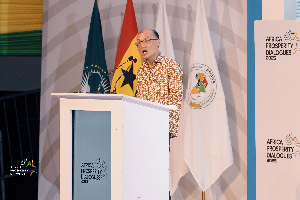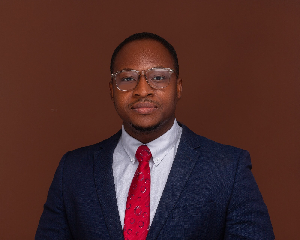The United Nations Educational Scientific and Cultural Organization (UNESCO) is supporting a two-day roundtable discussion designed to audit the process of implementing a National Youth Parliament (NYP).
The programme, which is being organized by Youth Bridge Foundation (YBF) in collaboration with the National Youth Authority, (NYA) will seek to develop a clearly-defined roadmap that would guide the process leading to a successful and sustainable establishment of the NYP.
Mr Seth Oteng, Executive Director of YBF told the GNA in an interview that participants in the discussion would be drawn from across the country, including leaders of youth networks, National Youth Association’s Consultative Assembly, Students’ Parliaments from tertiary institutions, Civil Society Organizations and Development Partners.
He stated that although the socio-economic conditions of young Africans had improved in recent years including an increment in school enrolment and a narrowing in the gender gap in education, young Africans continued to face difficulties in the areas of higher education, employment, health.
Mr Oteng mentioned that the youth in Africa had the potential to be a great force for Africa’s development, provided appropriate investments in their development were made and the problem of youth unemployment addressed especially, participation in decision-making processes.
He told the GNA that as youth issues were increasingly placed at the centre of the development agenda, there was a growing recognition of the rights of the youth to self-expression, participation in decision-making, access to information and right to association in all areas of society.
He said these different forms of youth participation were crucial to building a response to youth issues and allowing young people to become agents of change.
Mr Oteng noted that Africa was the world’s youngest continent with a proportion of its youth in relation to its total population, higher than in any other continent.
“Young people aged 15 to 24 constituted slightly more than 20 per cent of Africa’s population and about 36 per cent of Africa’s workforce. The number of young people looking for work and other life-supporting opportunities such as quality education, good health and proper housing was expected to increase by 28% in the next 15 years,” he said.
He said failure to address the countless issues critical to the youth and their development would have dire consequences for Africa’s economies and societies.
“Without opportunities for young people to earn a living, intergenerational cycles of poverty will persist, further affecting a continent already vulnerable to HIV/AIDS, food insecurity and violence,” Mr Obeng said.
Regional News of Tuesday, 26 February 2013
Source: GNA
















